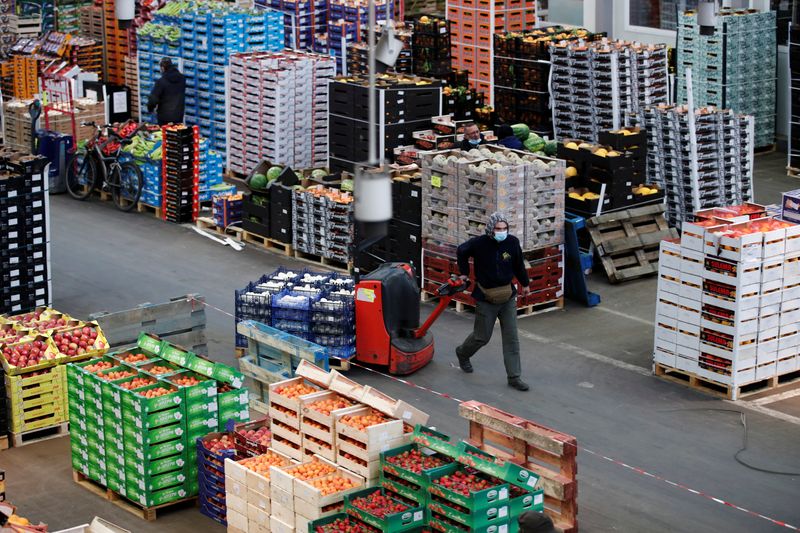PARIS (Reuters) - France's agri-food sector should focus more on expanding exports to destinations other than Britain, as French suppliers risk losing market share there even if the EU agrees a trade deal with Britain, the French agriculture minister said on Thursday.
Fractious discussions between the 27-country EU and former member Britain were due to resume on Thursday, as the two sides try to meet a year-end deadline to establish a new relationship governing billions of dollars worth of trade.
France exported last year 5.5 billion euros of agri-food goods to Britain, which was the joint third-largest export market for the French sector alongside Italy, according to farming agency FranceAgriMer.
Like in France's overall food exports, wine and spirits, cereals and dairy products weigh heavily in trade with Britain.
"Even if there is a deal, there will be a lot of change, the daily experience of exporting will change," Agriculture Minister Julien Denormandie told an agri-food event held by export promotion agency Business France.
"This forces us today to be even more active in winning new markets, especially for those of you who are heavily dependant on the UK market."
While it remained to be seen what tariffs and other import rules might be introduced by Britain, there was a risk that a change from the current single market will curb exports from the EU, particularly as Britain strikes trade agreements with other countries, Denormandie said.
The EU-UK negotiations were part of an uncertain outlook for the agri-food industry that is facing disruption to demand from coronavirus and punitive U.S. tariffs in a row over aviation subsidies, he added.
Paris was pursuing talks with countries such as China to obtain acceptance for a "zoning" principle to limit trade restrictions when there was a livestock disease outbreak, with pork export bans faced by Germany after it recorded cases of African swine fever showing the urgency of the issue, Denormandie said.
